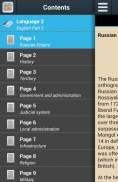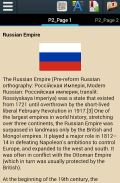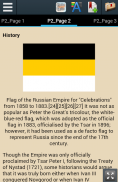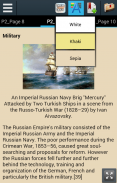








History of Russian Empire

Descriere History of Russian Empire
The Russian Empire (Pre-reform Russian orthography: Россійская Имперія, Modern Russian: Российская империя, translit: Rossiyskaya Imperiya) was a state that existed from 1721 until overthrown by the short-lived liberal February Revolution in 1917.[3] One of the largest empires in world history, stretching over three continents, the Russian Empire was surpassed in landmass only by the British and Mongol empires. It played a major role in 1812–14 in defeating Napoleon's ambitions to control Europe, and expanded to the west and south. It was often in conflict with the Ottoman Empire (which in turn was usually protected by the British).
At the beginning of the 19th century, the Russian Empire extended from the Arctic Ocean in the north to the Black Sea on the south, from the Baltic Sea on the west to the Pacific Ocean, and (until 1867) into Alaska in North America on the east.[4] With 125.6 million subjects registered by the 1897 census, it had the third largest population in the world at the time, after Qing China and the British Empire. Like all empires, it included a large disparity in terms of economics, ethnicity, and religion. There were numerous dissident elements, who launched numerous rebellions and assassination attempts; they were closely watched by the secret police, with thousands exiled to Siberia.
























